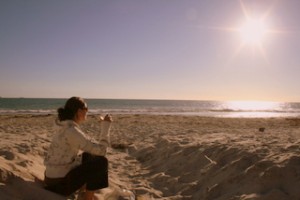Sorry for my delayed post, I was in Bali, Indonesia for the last week and although I brought my laptop, I had very few opportunities for internet access, connecting (and a slow connection at that) when I was in the main city of Kuta.
First of all, great work Group 6! I really enjoyed learning about OSS. Since I was in Indonesia, I decided to focus on this country’s use of OSS.
OSS is starting to becoming popular in Indonesia with more Indonesian people using this free software. The government is looking towards the development of OSS as a way to reduce the billions of dollars being spent on software from foreign vendors and as a major prevention against piracy. The biggest difficulties are that Internet access is limited (only the big cities, some universities don’t have internet), the high cost of computers and the language used in the software.
The Open Source Contributors Group (OSCG) was founded is maintained by people at the Informatics Engineering Department, Institut Teknologi Bandung, Indonesia http://www.itb.ac.id/en/. Anyone can contribute in this open source software development and technology enhancement group by contributing his/her works, ideas, opinions, and/or suggestions.
The following are some of the institutes’ students early projects: (see this report for more information)
gx-admin
This is a generic web-based interface for UNIX system administration using any browser that supports tables and forms. gx-admin was designed to be generic and able to configure any kinds of UNIX text-based system files. The configuration for this application itself is on a text file that enables users to add as many configurations as possible. gx-admin consists of a simple web server and a number of CGI programs which directly update system files. The web server and all CGI programs are written in Perl version 5, and only use the standard perl modules.
Pegasus
An indexing web robot that can be used to index some defined urls, a range of IP addresses, or even the whole web. Pegasus can be executed with a web browser (for an interactive interface) or straightly from the shell with valid arguments. It will send a request for a HTML page, parse the HTML page, save some significant information and then follow all the links in that page and repeat the process ‘recursively’. Pegasus will store the information on a database with PostgreSQL as its Database Management System. The database can be used for various purposes, such as search engine’s database for a website, or a private database which can be used to search information offline. Pegasus was written in Perl version 5.
RTSimula
This is a suite of programs that simulate the behavior of railroad hardware model. The simulator is truly real-time and intended to be used for the course of Real-time Programming. RTSimula currently consists of three different programs: the simulator – runs on Real-time Linux – doing the simulation by calculating some parameters provided by users, a monitor – runs on X-Window – drawing crude visualization of the trains and railways, and a simple controller program. The whole suite of programs (and the documentations) were written using OSS: Linux, Real-time Linux, and GTK+. All programs were written using C language.
Unicorn
This is a subject guide that has a search engine for its main facility. The search engine was developed to search information on a database as a result from Pegasus’ indexing process. Unicorn uses various techniques to search through the database, such as simple search, exact phrase search, and a wildcard search. Users can also define the options for the search process, including the search sequence and a time range of the last-modified date from a page in the database. Unicorn was written in Perl version 5.
Finally, here is a short video (not in english) that is used to campaign for Indonesia to go open source. 




